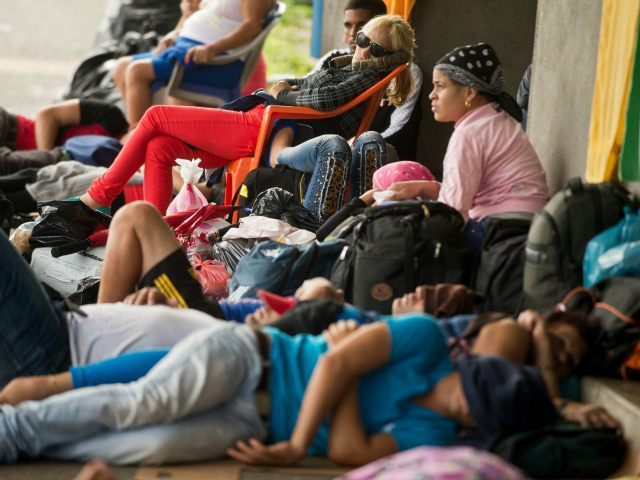Amid the Obama Administration’s effort to normalize relations with Cuba, visa-less immigration from the island nation to the United States is surging.
So far this fiscal year, which ends on September 30, more than 44,000 visa-less Cuban asylum-seekers have reached the U.S., according to Customs and Border Protection data provided to Agencia EFE. The current level is more than five times the number of Cubans who reached the U.S. in all of 2011, when fewer than 8,000 visa-less Cubans entered the U.S.
Unlike undocumented immigrants from other countries, Cubans who successfully reach the U.S. are uniquely granted automatic refugee status under the under the Cuban Adjustment Act (CAA). Refugee status provides immediate eligibility for welfare benefits and an expedited path to permanent residency.
In practice the CAA led to the so-called “wet-foot, dry-foot” rule, wherein those Cubans intercepted at sea have largely been returned to Cuba and those who make it to land are allowed to stay and receive special protections.
Interestingly, despite a policy named for dealing with maritime apprehensions, most visa-less Cuban immigrations to enter the U.S. via land ports of entry, specifically the U.S.-Mexico border. According to the Center for Immigration Studies, an average of 70 percent of total visa-less Cubans enter through Laredo, Texas each fiscal year. The Miami port of entry, on the other hand, sees an average of 13 percent of the annual total.
As EFE notes in its report, the increased immigration from Cuba to the U.S. began to skyrocket after the December 2014 announcement that the U.S. and Cuba were beginning to normalize relations. Reports have indicated that at least some of the surge has been inspired by fears that improvements in the relationship between the U.S. and Cuba will result in changes to the CAA.
Advocates for Cuban exiles, according to Agencia EFE, however, say there are other forces contributing to the surge, including political repression and false reforms, not just the possibility of losing special treatment under the CAA.
“People don’t see the possibility to prosper in their country,” Juan Antonio Blanco, director of the Foundation for Human Rights in Cuba, told EFE.
While the Obama Administration has assured that the improved relations will not result in changes to the CAA, amid the normalization effort and reports of extensive welfare abuse among some Cubans granted refugee benefits, some lawmakers have started to call for just that, a change in the policy.
Sen. Marco Rubio (R-FL) and Rep. Carlos Curbelo (R-FL) — both the sons of Cuban immigrants — introduced companion legislation earlier this year to end automatic refugee benefits for visa-less Cubans who make it to the U.S.
“If you are entering the United States, if you are immediately and automatically given status as refugees and in addition to that, being given access to a full portfolio of federal benefits, that’s being done because you’re supposedly fleeing oppression,” Rubio said on the Senate floor in May. “But then you’re traveling back to Cuba 15, 20 or 30 times a year in many cases, it puts in serious doubt whether everyone that’s now coming should be considered refugees for purposes of benefits. But today they are.”

COMMENTS
Please let us know if you're having issues with commenting.